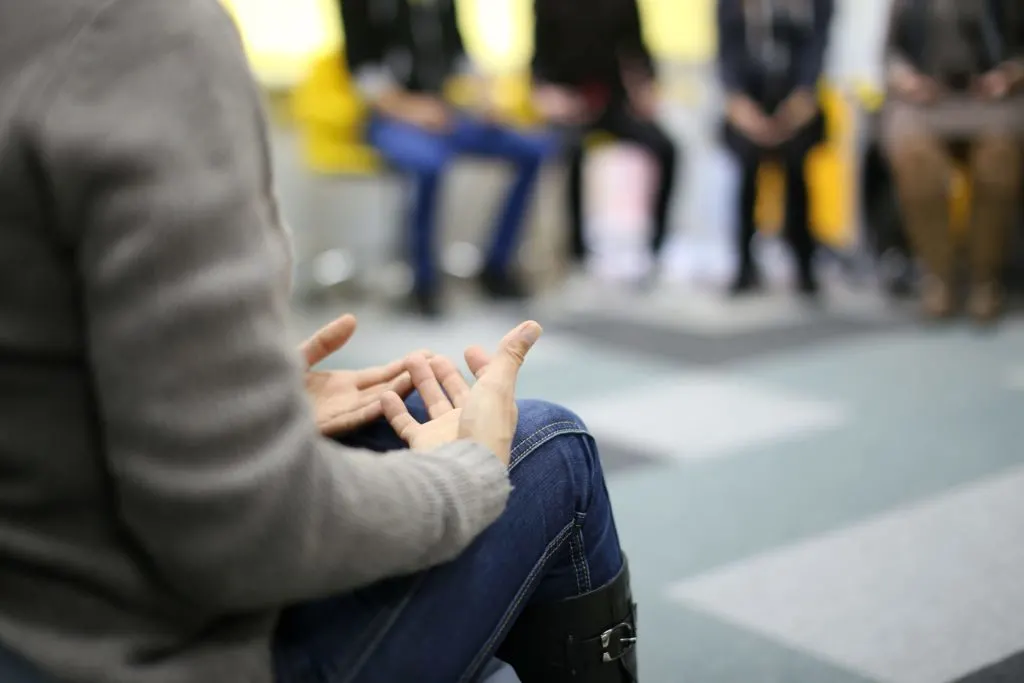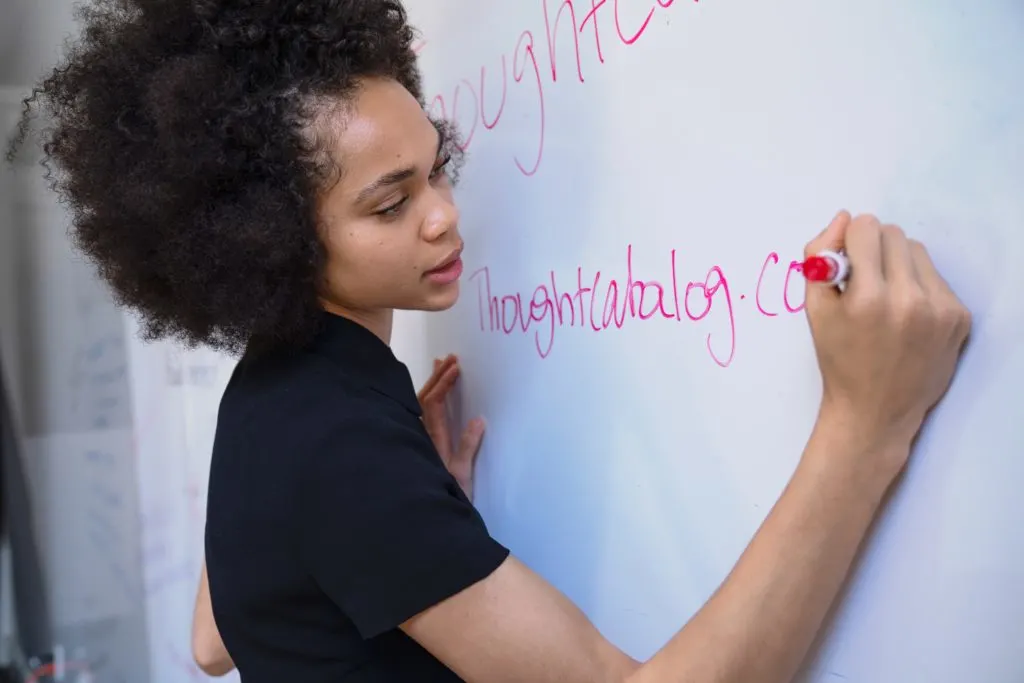If you or someone you know is experiencing suicidal thoughts or a crisis, please reach out immediately to the Suicide Prevention Lifeline at 800–273–8255 or text HOME to the Crisis Text Line at 741741. These services are free and confidential.
Have you ever had a moment where everything feels like it’s falling apart, and you thought, “I need someone to talk to”? We’ve all had these moments, and recognizing that you need to reach out is the most important step in moving forward.
In order to identify the best resource for you, think about what it is you need to connect with someone about. As mentioned above, if you are experiencing suicidal thoughts or are having a mental health crisis, it is crucial that you call 911 and ask for medical assistance, or reach out to the Suicide Prevention Lifeline at 800–273–8255.
For those of you who are feeling overwhelmed with what life is throwing at you, struggling with a substance or behavioral addiction, or who are feeling isolated and lonely, there are lots of options, if you just know where to look.
Telephone Hotlines
Telephone hotlines have long been a resource for anyone needing to connect with others and get help.
Hotlines have fallen out of fashion somewhat with the ubiquity of the internet, but there are a few major ones that remain, offering a free way to connect, especially for those who are experiencing a crisis:
Suicide Prevention Lifeline & Crisis Text Line
800–273–8255; Text HOME to 741741
There are many active suicide prevention hotlines, but this one is perhaps the most widely-known. The hotline is staffed by volunteers and mental health professionals in crisis centers all over the country, and callers are typically connected with a crisis center in their area. Staffers don’t follow a script, so you will be able to talk about anything you want. Hotline workers will work with you to come up with a safety plan that you feel comfortable with and will not dispatch emergency services or police to your home unless there is an imminent threat to your life and safety.
Domestic & Sexual Violence
If you are experiencing domestic or sexual violence, and need to talk to someone, these hotlines are here to help:
- National Domestic Violence Hotline: 800-799-7233
- RAINN: 800-656-4673
Substance Abuse & Eating Disorders
If you are struggling with addiction or an eating disorder, and would like to connect with someone, these hotlines can help connect you with services, or just lend a listening ear:
- SAMHSA’s National Helpline: 800-662-4357
- National Eating Disorders Association: 800-931-2237
LGBTQ+ Support
Many telephone hotlines exist specifically to support the LGBTQ+ community, including:
- The Trevor Project for LGBTQ+ youth: 866-488-7386
- LGBT National Hotline for all ages: 888-843-4564
- Trans Lifeline for all ages: 877-565-8860

Online Communities
If you’re looking to connect with others and become part of a community online, the possibilities are almost endless! Here are a few ideas to get started:
- Join your neighborhood Facebook group or Nextdoor community. Members of these groups share their favorite restaurants, commiserate about noisy neighbors and broken streetlights, and debate local politics. You may find opportunities to move these friendships offline after finding folks you connect with.
- Are you someone who likes to engage in lively debate about the topics you’re interested in? Try Reddit or Quora.
- If you are looking for mental health support from your peers online, Mental Health America offers a great online forum where people can share on a variety of topics.

Mental Health Professionals & In-Person Support Groups
If you think you would benefit from a higher level connection with a mental health professional or support group, you’re not alone. Everyone needs support, and reaching out to a therapist or joining a support group are great ways to connect with others who can help you overcome your struggles.
Finding a Therapist
Mental healthcare has a well-earned reputation for being costly, but it is absolutely possible to see a therapist on a budget. So, how do you find a provider?
- Psychology Today hosts a massive directory of mental health providers all over the U.S. To find a provider who accepts Medicaid or Medicare, or who works on a sliding-scale basis, visit their website, select your state, and enter your payment preferences.
- Similarly, you can use ZocDoc to search for providers who accept Medicaid or Medicare in the “insurance carrier and plan” search field.
- Sometimes when therapists have completed their basic training, they go on to earn advanced certification at training institutes. These training institutes often offer low-cost, high quality therapy, provided by their trainees. To find a training institute in your area, try searching terms like “low cost therapy [your state or city] training institute”.
Finding a Support Group
If you feel that you would benefit from connecting with others about a common challenge that you face, you will likely find a support group to be very beneficial. Support groups exist in many forms, and increasingly, they take place online. Read on for more information about how to find a support group that works for you.
It is likely that you are aware of Alcoholics Anonymous as a resource for those who wish to quit drinking, but are you aware of the vast network of 12-step recovery groups that exist for those struggling with other types of challenges?
- Al-Anon provides support and community for family members of alcoholics.
- Overeaters Anonymous is a resource for those who use food to self-medicate.
- Sex & Love Addicts Anonymous and Co-Dependents Anonymous are groups for those who struggle in romantic relationships.
- Computer Gaming Addicts Anonymous, Gamblers Anonymous, and Debtors Anonymous are there for you if these behavioral addictions are impacting your wellbeing.
- Social Anxiety Anonymous is a group for those with social anxiety disorder and others who experience difficulty with social relationships and situations.
If 12-step recovery groups aren’t for you, you can find other types of support groups to attend locally through Mental Health America and The Anxiety & Depression Association of America.

Other Ways to Connect
If you’re like many of us, you may have found that making new friends and building community can be difficult, especially if you’re no longer attending school, where many of those connections are initially formed, and responsibilities like work and parenting take up the majority of your time. Like anything, if building a stronger support network is important to you, it is achievable as long as you make it a priority. With a strong support network, a listening ear isn’t hard to find when you have those moments when you think, “I need someone to talk to”.
Making friends and forging connections is possible, but how?
Get Involved in Your Local Community
In recent years, we’ve seen a decline in community involvement across the country. Many theories exist to explain this phenomenon – some attribute this to a decline in church attendance, others to the internet, and others still to the growing emphasis on individual success. Whatever the reason, the impact is clear: we’re less connected to our communities than ever before.
There are still ways to get more involved, right in our backyards. Here are a few ideas to try out:
- Volunteer: This is a common piece of advice for making new connections, but there is a particular type of volunteerism that is designed for building connections, and it’s called “mutual aid”. Throughout the COVID-19 pandemic, mutual aid networks have proliferated in many communities across the country. The purpose of these networks is specifically to connect neighbors so that they can support one another. When you volunteer with a mutual aid network, you are signing up to fulfill a need for someone else, but can also get assistance for yourself. One day you may pick up groceries for a homebound neighbor, while the next day another neighbor picks your kids up from soccer practice when you have to work late.
- Attend religious or spiritual services: If you take part in a religious tradition, try getting more involved in your local church, synagogue, mosque, or temple. Religious groups tend to welcome newcomers with open arms and create an atmosphere where it is easy to become part of the community.
- Take a Class: Check out the offerings at your local YMCA, community colleges or universities, and museums. Many offer free or low-cost classes on a variety of topics, and you’ll have the chance to connect with others who have similar interests.
You may also consider taking a less traditional route. Most of us are familiar with dating apps like Tinder and Match.com, but did you know that apps exist to help you make friends in a similar way?
- BumbleBFF: Like its dating app counterpart Bumble Date, BumbleBFF connects you with others in your area who are interested in making new friends.
- Skout: The Skout app connects you with others who are broadcasting their location nearby, making it easier to approach others who are interested in meeting.
- Patook: Patook calls itself the “strictly platonic friend making app”, and many have been successful in forming new friendships this way.
We all have those “I need someone to talk to” moments. No matter the reason for needing to reach out, the most important thing to remember is that you’re not alone.

